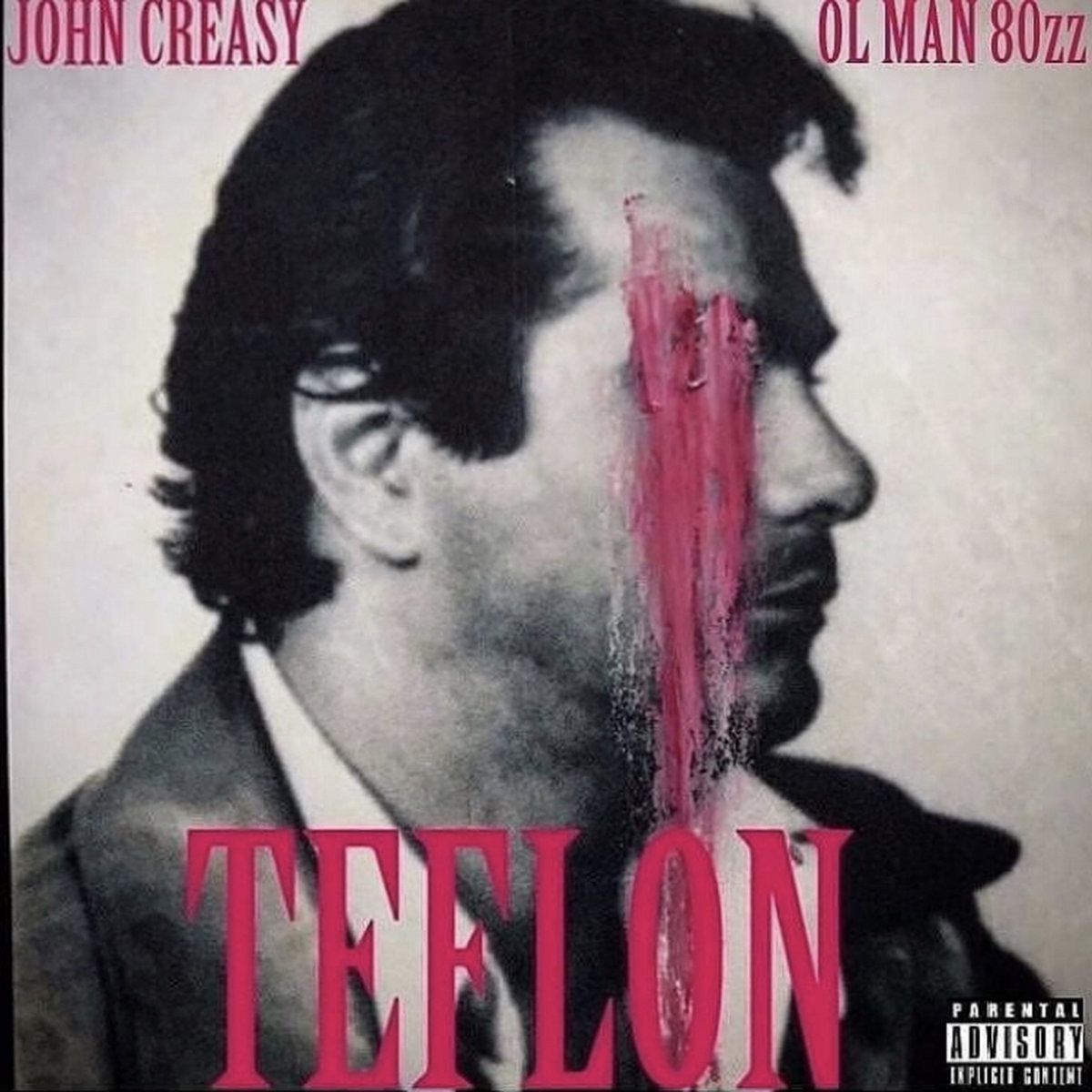Was John Creasy A Real Person? Unpacking The Truth Behind The Name John
Have you ever found yourself wondering, perhaps after watching a gripping film or reading an intense book, "was John Creasy a real person?" It's a question that, you know, pops up quite a bit, especially when a character feels so incredibly vivid and impactful. So, too, it's almost natural to feel a curiosity about whether such a compelling figure walked among us. Today, we're going to pull back the curtain on that very query and explore the different facets of the name "John" that might lead to this kind of thought, looking at both fictional and historical figures.
It's interesting, really, how certain names just stick with us, isn't it? The name "John" itself carries a lot of weight, you see, appearing in so many different stories, from ancient texts to modern blockbusters. This can, in a way, make it a bit confusing when you hear a name like "John Creasy" and then try to place it in the real world. We'll sort through that puzzle, offering clarity on who John Creasy is and then, you know, shifting our gaze to other notable figures named John who genuinely made their mark on history, drawing from some fascinating insights.
So, get ready to discover the actual origins of the character John Creasy and then, more broadly, explore some incredibly significant individuals who bore the name John. This journey will, quite frankly, take us from the pages of fiction right into the heart of historical accounts and even, just a little, into the world of music. You'll see, it's a pretty rich topic, full of surprising connections and, arguably, some very important lessons about how stories, both real and imagined, shape our view of the world around us.
Table of Contents
- The Fictional John Creasy: Man on Fire
- The Biblical John: A Witness to Light
- John Lennon: A Voice for Generations
- The Name "John": A Timeless Legacy
- Frequently Asked Questions About John Creasy and Other Johns
The Fictional John Creasy: Man on Fire
Let's get straight to it: the John Creasy many people ask about, the one from the thrilling "Man on Fire" movies and books, is not a real person. He's a character, you see, a creation of the talented author A. J. Quinnell. The stories about him, which are pretty intense, depict a former CIA operative who becomes a bodyguard, and then, you know, seeks revenge when his young charge is kidnapped. It's a very compelling narrative, full of action and deep emotional stakes, which is why, I think, people often wonder if it's based on something true.
The character of John Creasy first appeared in Quinnell's 1980 novel, also called "Man on Fire." This book, and its sequels, developed his persona as a man of few words but strong convictions, someone who, arguably, operates by his own moral code. The film adaptations, particularly the 2004 version starring Denzel Washington, really brought Creasy to life for a global audience, making him, quite frankly, an iconic figure in cinematic history. This popularity, naturally, fuels the curiosity about his real-world existence, but he remains, essentially, a work of fiction.
So, while the emotions and themes explored in the "Man on Fire" stories — things like loyalty, loss, and the pursuit of justice — feel very real, the character of John Creasy himself is a product of imagination. He serves as a powerful symbol within those narratives, illustrating, in a way, the lengths one might go to protect someone innocent. It's a testament to the storytelling that his presence feels so, you know, tangible, even though he's not someone you'd find in historical records from, say, today, April 24, 2024.
The Biblical John: A Witness to Light
Now, shifting gears quite a bit, there's another hugely significant "John" that comes up in historical texts, particularly ancient religious writings. This is John the Baptist, a figure who, you know, played a very crucial role in the story of Christianity. Our text mentions him quite a bit, describing him as "a man sent from God, whose name was John," and stating that "the same came for a witness, to bear witness of the light, that all men through him might believe." He was not, it tells us, "that light, but was" a witness to it.
John's purpose, as described in these ancient accounts, was to prepare the way for someone greater. He was, actually, quite a vocal figure, baptizing people in the Jordan River and urging them to change their ways. Our text highlights his humility, noting that "he did not fail to confess, but confessed freely, 'I am not the Messiah.'" This was John’s testimony, you see, when religious leaders from Jerusalem came to question him about who he was. He was, quite clearly, pointing beyond himself to another.
The significance of John the Baptist cannot, arguably, be overstated. He was, as our text says, "testified about him when he shouted to the crowds, 'this is the one I was talking about when I said, "someone is coming after me who is far greater than I am, for he existed long before."'" These events, including John baptizing in Bethabara beyond the Jordan, are foundational to understanding the early days of Christianity. His life and mission were, in a way, all about preparing hearts and minds for a new message. You can learn more about John the Baptist's historical significance and his place in religious tradition.
The name "John" itself, as our provided text hints, has deep roots in these biblical narratives. It became a very common name, you know, because of figures like John the Baptist and John the Apostle, who is often associated with "John's Gospel." The text mentions that "the purpose of John’s Gospel" was to record signs so that people "may believe." It also notes that "the earliest manuscripts and many other ancient witnesses do not have John 7:53—8:11," which is a little detail about how these ancient texts were passed down. So, the name John, quite frankly, carries centuries of history and meaning, especially in Western cultures.
Personal Details and Bio Data of John the Baptist
| Detail | Information |
|---|---|
| Known As | John the Baptist, Saint John the Baptist, John the Baptizer |
| Role | Prophet, Precursor to Jesus, Baptizer |
| Parents | Zechariah and Elizabeth |
| Birthplace (Traditional) | Ein Karem, near Jerusalem |
| Main Activity | Preaching repentance, baptizing people in the Jordan River |
| Key Message | "Repent, for the kingdom of heaven has come near." (Matthew 3:2) |
| Relationship to Jesus | Cousin; prepared the way for Jesus' public ministry |
| Noteworthy Act | Baptized Jesus Christ |
| Death (Traditional) | Beheaded by Herod Antipas at the request of Salome |
John Lennon: A Voice for Generations
Beyond the biblical figures and fictional heroes, the name "John" also belongs to, you know, some truly iconic people from more recent history. One such person, mentioned in our provided text, is John Winston Lennon. Born on October 9, 1940, in Liverpool, England, he became, arguably, one of the most influential musicians and cultural figures of the 20th century. He was, as many know, a founding member of the legendary rock band "The Beatles," a group that, quite frankly, changed the face of music forever.
Lennon was much more than just a musician; he was also, in a way, a poet and a social activist. His songs, very often, carried messages of peace, love, and social justice, resonating with millions around the globe. He was, essentially, a voice for his generation, and his impact on music, art, and even political thought is still felt today. His life, tragically, ended on December 8, 1980, but his legacy, you know, continues to inspire people across different ages and backgrounds.
So, when we think about famous "Johns," Lennon is, without a doubt, a name that immediately comes to mind. His journey from a young boy in Liverpool, entering school in September 1952, to a global icon, illustrates just how much influence a single person can have. He's a prime example of a "John" who was, absolutely, a real person, leaving an indelible mark on our collective memory and, quite simply, on the fabric of popular culture.
The Name "John": A Timeless Legacy
It's pretty fascinating, isn't it, how one name can be associated with so many different kinds of figures, from fictional avengers like John Creasy to pivotal religious figures like John the Baptist, and then to cultural revolutionaries like John Lennon? The sheer prevalence of the name "John" across various cultures and eras is, you know, quite remarkable. Our text even touches on this, explaining that "John" became a mainstream translation for the biblical figure "John the Baptist" in Chinese, similar to how names like "David" or "Peter" became widely accepted. This happened, apparently, even before standardized translation rules were set, becoming, essentially, "约定俗成" (customary and widely accepted).
This enduring popularity of the name "John" isn't just a coincidence. It reflects, in some respects, the deep historical and cultural significance of the figures who first bore it. From its Hebrew origins meaning "God is gracious," the name has, quite simply, carried a sense of importance and reliability. It's a name that, you know, feels both classic and approachable, making it a favorite choice for parents for centuries. This continuous use has, arguably, cemented its place in our collective consciousness, allowing it to be easily adopted for new characters and real people alike.
So, the next time you hear the name "John," whether it's in a movie, a history book, or just in everyday conversation, you might, you know, pause for a moment. You'll realize that it's a name with a very rich tapestry of meanings and associations. It’s a name that, quite frankly, connects us to stories of heroism, faith, and creativity, spanning thousands of years. It really shows how a simple name can, in a way, carry so much weight and history, influencing our perceptions and sparking our curiosity about who might be behind it.
Frequently Asked Questions About John Creasy and Other Johns
Here are some common questions people often have about John Creasy and the broader topic of people named John:
Is Man on Fire a true story?
No, the story of "Man on Fire" is a work of fiction. It's based on the novel by A. J. Quinnell, and the character of John Creasy is, you know, entirely imagined. While the film explores very real emotions and themes, the events and characters depicted are not, in fact, drawn from actual historical occurrences. It's a powerful story, absolutely, but it's not a documentary.
Who was the real John Creasy?
There isn't, quite simply, a "real" John Creasy. The character is a fictional creation from the mind of author A. J. Quinnell. Any real-world inspiration for the character would be, arguably, in the general archetype of a hardened, protective individual, rather than a specific person. So, when people ask this, it's usually because the character felt so, you know, believable and impactful.
What is John Creasy's backstory?
In the fictional narrative, John Creasy's backstory involves him being a former CIA operative who has become disillusioned and, you know, struggles with personal demons. He's often portrayed as a man with a very troubled past, seeking some kind of redemption or peace. This background, quite frankly, explains his skills and his often grim outlook, making him a complex and, in a way, very intriguing character in the books and films. It's a key part of what makes his story so compelling.
Learn more about on our site, and link to this page

POWER | John Creasy

POWER | John Creasy

TEFLON | John Creasy x Olman80zz | John Creasy